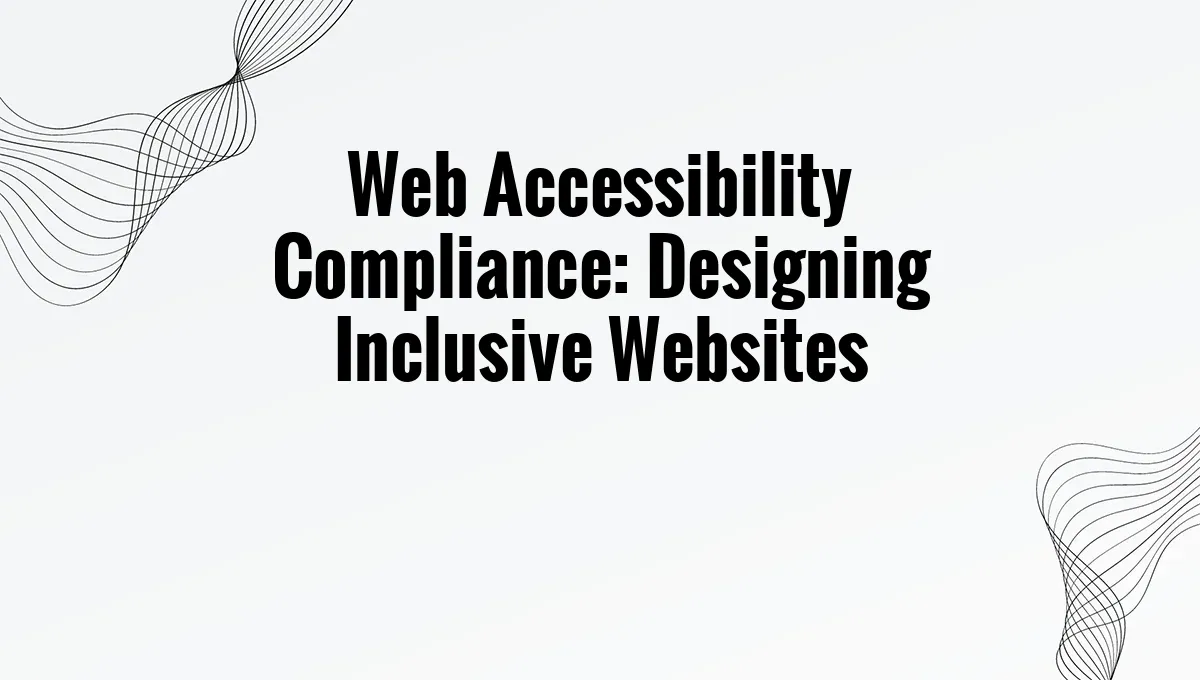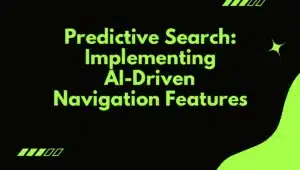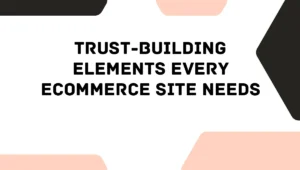Web Accessibility Compliance: Designing Inclusive Websites
Welcome to another insightful piece from Cham Agency, where we believe inclusivity isn’t just a buzzword; it’s a business imperative.In a world that thrives on digital interactions, the accessibility of your online presence isn’t optional-it’s essential.If you’re a business owner, startup, or part of a marketing team looking to grow your brand and boost conversions, understanding web accessibility compliance can transform how you connect with your audience.
What Is Web Accessibility?
Web accessibility means ensuring that your website is usable for everyone, including those with disabilities.This can range from visual impairments to cognitive challenges. According to the World Health Organization, over a billion people worldwide experience some form of disability. Ignoring this demographic isn’t just a lost opportunity; it can also lead to legal repercussions in regions where accessibility laws exist.
The Legal landscape
Understanding the legal implications is step one. In the U.S., the Americans with Disabilities Act (ADA) has been extended to apply to websites, meaning businesses can be held accountable if they fail to comply with accessibility standards. Similarly, the Web Content Accessibility Guidelines (WCAG) set forth standards most businesses should strive for. Compliance with these guidelines isn’t merely a checkbox; it’s a commitment to entering the market of potential users that your competitors might overlook.
Why Accessibility Matters for your Business
incorporating accessibility into your digital strategy isn’t just about compliance; it’s about growth. Here are a few compelling reasons:
1. Reach a Wider Audience
When your website is accessible, it becomes usable for all visitors, regardless of ability. This opens the floodgates to a demographic often overlooked. as an exmaple,if you’re an e-commerce site,even textured product descriptions and alt text for images can crucially influence purchasing decisions for someone with visual impairments.
2.Enhance User Experience
Web accessibility is ultimately about enhancing the overall user experience. Features like keyboard navigation and screen reader compatibility contribute not only to compliance but also to a smoother experience for all users. Think of it this way: an accessible site is frequently enough more navigable, intuitive, and user-kind-qualities everyone appreciates.
3. Improve SEO Performance
believe it or not, the elements that enhance accessibility often align perfectly with smart SEO practices. Semantic HTML, alt text, and proper heading structure not only help screen readers understand your site better but also can enhance your site’s ranking on search engine result pages. Why? As search engines prioritize content that is clear, organized, and easy to understand.
Actionable Strategies for Enhancing Accessibility
Here’s where the rubber meets the road. Implementing accessibility doesn’t require an entire site overhaul; small, actionable steps can yield unbelievable results.
1. Perform an accessibility Audit
Start by assessing your current website against WCAG guidelines.Tools like WAVE Accessibility Evaluation Tool or Google’s Lighthouse can provide you with initial insights. Identify where you stand and prioritize changes based on impact and effort.
2. Use Alt Text Strategically
Always include descriptive alt text for images,diagrams,and infographics. Don’t just stick to ‘image1.jpg’.Instead, describe what is in the image, its context, and its relevance. This simple practice not only aids visually impaired users but also enriches SEO.
3. ensure Keyboard Navigation
Many individuals rely on keyboards instead of mouse devices,so make sure all interactive elements on your site are navigable and usable via keyboard shortcuts.Test this with tab functions: can a user access all areas with just the tab key?
4. Color Contrast and Typography
Check color contrast ratios to ensure text stands out against backgrounds. Use accessible color combinations for your text and background. Additionally, make fonts scalable and clear to read; consider the 1.5 line spacing rule for better readability.
5. Continuous Learning and Adaptation
The landscape of digital accessibility is always evolving. Consider integrating accessibility training into your team’s development processes. As an example, platforms like WebAIM not only offer guidelines but also training resources that can empower your team.
Case Study: How Accessibility Transformed a Brand
Consider the case of a mid-sized e-commerce brand struggling with conversion rates. After performing an accessibility audit, they discovered several key areas of enhancement: inaccessible images, an entangled navigation system, and poor text contrast. By implementing changes like alt text, improved navigation, and updated design features, they saw a 35% increase in their conversion rates within just six months. More importantly, they received positive feedback from customers who appreciated the enhanced shopping experience. These adjustments didn’t just boost their bottom line; they also solidified their brand as an inclusive market player.
The Mindset Shift: Inclusivity as Innovation
Adopting an accessibility mindset means viewing challenges uniquely. Rather of seeing compliance as a burden, consider it a pathway to innovation. Every adjustment made for accessibility serves dual purposes: it enriches user experience and propels business growth.
Final Thought
Web accessibility compliance isn’t just a legal requirement; it’s a gateway to a more diverse customer base and improved performance metrics. By creating inclusive websites, Cham agency empowers businesses to not only comply with laws but to embrace a forward-thinking, customer-focused digital strategy.
Don’t wait for accessibility to become a trend-be the trendsetter. Invest the time, make the changes, and watch your engagement and conversions grow. The digital landscape is vast, and ensuring everyone can navigate it is both a duty and an opportunity.
Bookmark this post for future reference, and explore your web accessibility journey today with Cham Agency leading the way! #WebAccessibility #InclusiveDesign #ChamAgency





